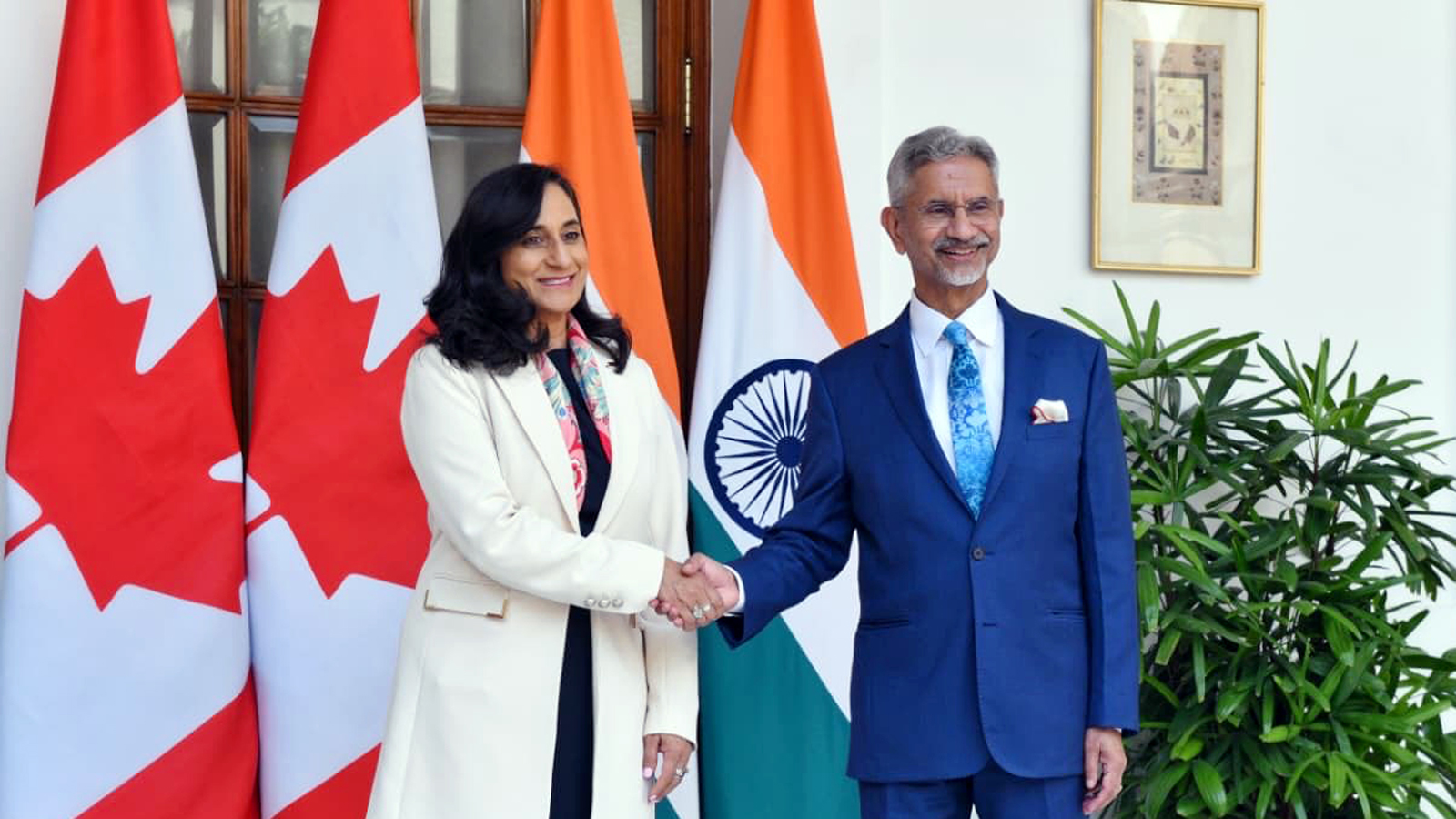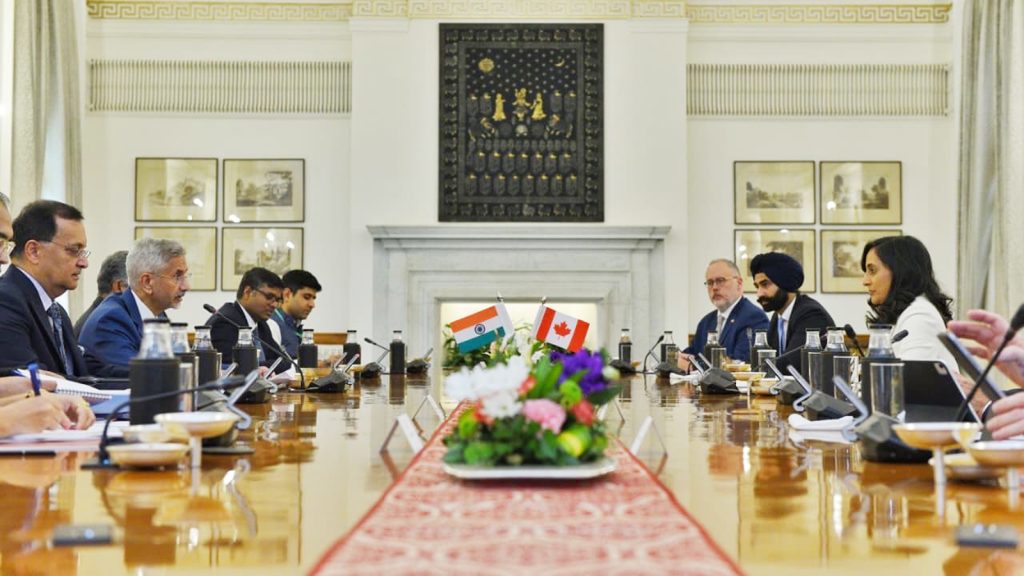External Affairs Minister S. Jaishankar and Canada’s Foreign Affairs Minister Anita Anand on Monday held high-level talks in New Delhi, aimed at revitalizing the India-Canada ties. The visit marks Anand’s first official trip to India as Foreign Minister and follows months of renewed engagement between the two nations.
The meeting builds on the understanding reached between Prime Minister Narendra Modi and Prime Minister Mark Carney during their bilateral discussions on the sidelines of the G7 Summit in Kananaskis, Canada, earlier this year. Both countries have since taken calibrated steps to restore stability in ties, including reinstating High Commissioners on August 28 and holding key security and diplomatic consultations in September.
India and Canada have agreed on a comprehensive roadmap to deepen cooperation across strategic, economic, security, and technological domains. This plan is anchored in shared democratic values, respect for sovereignty, and a commitment to strengthening people-to-people ties.
The Ministers underscored that a resilient bilateral relationship is essential in the face of global economic uncertainty and shifting geopolitical dynamics. Strengthening trade, supply chain resilience, and strategic stability are central pillars of this renewed engagement.
Bilateral trade between India and Canada reached $23.66 billion in 2024, reflecting robust economic complementarities. To build on this momentum, both sides will soon initiate ministerial-level trade and investment talks and resume the Canada–India CEO Forum in early 2026. Priority sectors will include clean technology, infrastructure, agri-food, and digital innovation.
Jaishankar highlighted Canada’s “complementary economy” and shared values of “diversity and pluralism” as the foundation for a sustainable and long-term partnership. Anand described the joint statement as “comprehensive and all-encompassing,” emphasizing shared priorities in security, critical minerals, energy, AI, and climate action.
Climate, Energy, and Critical Minerals
Climate cooperation is a central element of the new roadmap. India and Canada will enhance collaboration on renewable energy, decarbonizing industries, reducing plastic pollution, and sustainable consumption. A key initiative will be re-establishing the Canada-India Ministerial Energy Dialogue to advance clean energy technologies, LNG and LPG trade, green hydrogen development, and energy transition strategies.
The first Critical Minerals Annual Dialogue is set to take place in Toronto in March 2026, as both countries explore ways to strengthen supply chains and leverage Canada’s mining expertise to support India’s energy security goals.
Innovation, AI, and Digital Cooperation
The two countries agreed to deepen collaboration in science and technology, including artificial intelligence and digital public infrastructure. The Joint Science and Technology Cooperation Committee will be relaunched, and Canadian AI companies and researchers are expected to participate in India’s upcoming AI Impact Summit in February 2026.
Agriculture and Food Security
Acknowledging the role of agriculture in sustainable development, India and Canada will work together on stable supply chains, agri-value chain development, climate-resilient farming, and waste-to-energy innovations to promote food security and boost farmers’ incomes.
Education, Mobility, and Cultural Exchange
People-to-people ties remain a cornerstone of the bilateral relationship. Both sides agreed to strengthen cooperation in education, tourism, and cultural exchange. The Joint Working Group on Higher Education will be revitalized to expand academic collaborations and Canadian institutions are expected to enhance their presence in India.
Rebuilding Strategic Trust
Jaishankar said that India and Canada were “working to restore and reinvigorate the mechanisms necessary to advance the partnership,” noting the “productive” meetings between National Security Advisers and trade ministers in recent weeks. Anand expressed confidence that both governments are aligned on the “strategic importance” of elevating the relationship and ensuring that future cooperation is comprehensive and forward-looking.
The visit follows the appointments of Christopher Cooter as Canada’s High Commissioner to India and Dinesh K. Patnaik as India’s High Commissioner to Canada. These steps, officials said, signal a “reset” in the bilateral relationship.
Broader Indo-Pacific and Global Cooperation
Both nations reaffirmed their shared commitment to effective multilateralism and collaboration in the G20 and Commonwealth of Nations. They emphasized their convergences in the Indo-Pacific and the importance of working together on climate action and the 2030 Sustainable Development Goals.
Following her engagements in New Delhi, Anand will travel to Mumbai to meet business leaders and later visit Singapore and China as part of a broader diplomatic tour.
The renewed roadmap marks a turning point in India–Canada relations, setting the stage for a more stable, pragmatic, and forward-looking partnership.
(With agency inputs)















